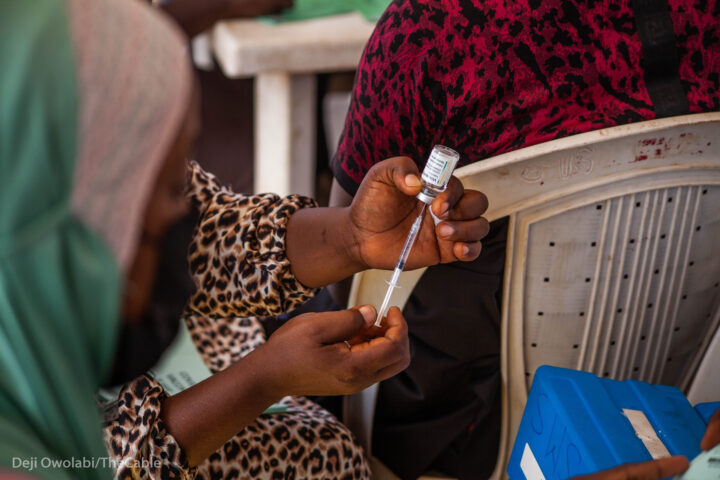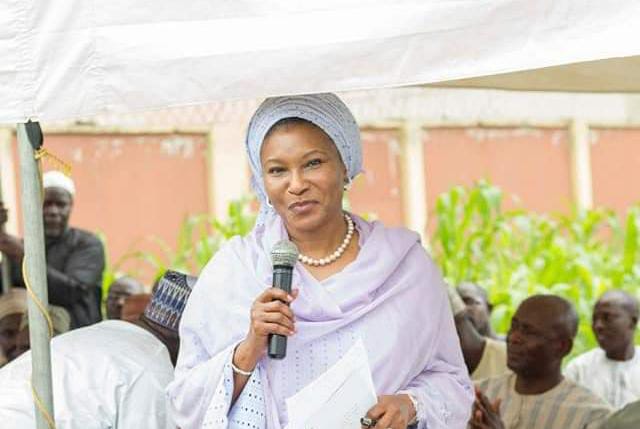New data released by the World Health Organisation (WHO) and the United Nations Children’s Fund (UNICEF) say nearly 20 million infants missed at least one dose of the diphtheria, tetanus and pertussis (DTP)-containing vaccine in 2024.
In a joint statement on Tuesday, the two agencies revealed that 89 percent of infants globally — around 115 million children — received at least one dose of the DTP vaccine, while 85 percent, roughly 109 million, completed all three recommended doses.
The report shows modest gains over the previous year, with 171,000 more children receiving at least one dose compared to 2023, and one million more completing the full three-dose schedule.
However, the number of children who missed some or all doses remains unacceptably high, threatening global progress toward universal immunisation.
Advertisement
“Still, nearly 20 million infants missed at least one dose of DTP-containing vaccine last year, including 14.3 million ‘zero-dose’ children who never received a single dose of any vaccine,” the statement reads.
The 14.3 million zero-dose children represent 4 million more than the 2024 target needed to stay on track with the global Immunisation Agenda 2030 goals, and 1.4 million more than in 2019 — the baseline year for measuring progress.
According to the report, children often remain unvaccinated due to a combination of access barriers, disrupted supply chains, conflict, instability, and misinformation about vaccine safety. These challenges have caused immunisation coverage to stagnate or decline in several parts of the world.
Advertisement
Among the 195 countries surveyed, only 131 have consistently reached at least 90 percent coverage for the first dose of the DTP vaccine since 2019.
Of the countries that fell below the 90 percent threshold in 2019, just 17 improved their coverage in the last five years. In contrast, 47 countries have either stalled or worsened — including 22 that had surpassed 90 percent in 2019 but have since regressed.
“The data shows conflict and humanitarian crises can quickly erode vaccination progress. A quarter of the world’s infants live in just 26 countries affected by fragility, conflict, or humanitarian crises, yet they make up half of all unvaccinated children globally,” the statement added.
In these countries, the number of unvaccinated children rose sharply from 3.6 million in 2019 to 5.4 million in 2024, highlighting the urgent need for humanitarian responses to include immunisation as a core component.
Advertisement
Despite these setbacks, WHO and UNICEF noted that many countries — particularly those supported by Gavi, the Vaccine Alliance — continue to make progress in introducing and scaling up vaccines against diseases such as human papillomavirus (HPV), meningitis, pneumococcal disease, polio, and rotavirus.
Tedros Adhanom Ghebreyesus, director-general of WHO, said while it was encouraging to see more children being vaccinated, the current pace of progress was insufficient.
“Vaccines save lives, allowing individuals, families, communities, economies and nations to flourish. Drastic cuts in aid, coupled with misinformation about the safety of vaccines, threaten to unwind decades of progress. WHO remains committed to working with our partners to support countries to develop local solutions and increase domestic investment to reach all children with the lifesaving power of vaccines,” he said.
The agencies issued a call to action urging governments and international partners to close the funding gap for Gavi’s next strategic cycle (2026–2030), strengthen immunisation services in fragile and conflict-affected settings, and prioritise domestically led solutions to improve vaccine access and uptake.
Advertisement
They also called for increased efforts to counter misinformation with evidence-based campaigns, invest in robust disease surveillance systems, and embed immunisation within broader primary healthcare structures to close equity gaps.
As the world moves further away from the disruption of the COVID-19 pandemic, the agencies warned that complacency, underfunding, and rising disinformation could deepen global immunisation gaps unless urgent corrective action is taken.
Advertisement









